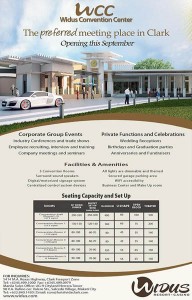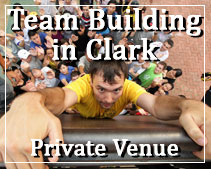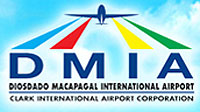RETIRE IN CLARK PAMPANGA: What is Assisted Living?
Assisted Living: The new housing and health care alternative combining independence with personal care in a warm, dignified, community setting.
What is assisted living?
The Assisted Living Federation of America (ALFA) defines an assisted living residence as a special combination of housing, personalized supportive services and health care designed to meet the needs – both scheduled and unscheduled – of those who need help with activities of daily living.
What is the philosophy of assisted living?
ALFA members subscribe to a 10-point philosophy of care:
1. Offering cost-effective quality care that is personalized for individual needs
2. Fostering independence for each resident
3. Treating each resident with dignity and respect
4. Promoting the individuality of each resident
5. Allowing each resident choice of care and lifestyle
6. Protecting each resident’s right to privacy
7. Nurturing the spirit of each resident
8. Involving family and friends, as appropriate, in care planning and implementation
9. Providing a safe, residential environment
10. Making the assisted living residence a valuable community asset
Who lives in assisted living residences?
Currently, more than a million Americans live in an estimated 20,000 assisted living residences. Wisconsin has more than 2400 assisted living facilities in which reside well over 31,000 individuals with very diverse needs, from relatively independent seniors and other adults, to persons with advanced stages of Alzheimer’s Disease and other forms of dementia, developmental disabilities, physical disabilities, mental illnesses, traumatic brain injuries, alcohol and drug addiction, and those in the correctional system.
What does an assisted living residence look like?
Assisted living residences can range from a high-rise apartment complex to a family residence to a converted hotel. Residences may be free standing or housed with other residential options, such as independent living or nursing care. Non-profit or for-profit companies may operate them. There is no single blueprint, because consumers’ preferences and needs vary widely. Units may vary in size from one room to a full apartment.
How is assisted living regulated?
Regulations and licensing regulations vary from state to state contributing to the wide range of senior housing models considered assisted living. Most providers and their staff have special training as a result either of state requirements or company policy. Some states require special staff certification and training.
Residences must comply with local building codes and fire safety regulations. ALFA believes the most successful regulations are consumer drive, balancing the safety concerns we all share with the consumers’ desires to retain their independence and freedom of choice.
In Wisconsin, assisted living is regulated under by the Department of Health and Family Services under DHS-83 (CBRF-Community Based Residential Facilities), DHS-89 (RCAC-Residential Care Apartment Complex) and DHS-88 (AFH-Adult Family Homes.)
What types of services are offered in assisted living residences?
Services typically provided in assisted living residences, depending on the type of facility, needs of individual residents and the population served, include:
β’ Three meals a day served in a common dining area
β’ Housekeeping services
β’ Transportation
β’ Assistance with eating, bathing, dressing, toileting and walking
β’ Access to health and medical services
β’ 24-hour security and staff availability
β’ Emergency call systems for each resident’s unit
β’ Health promotion and exercise programs
β’ Medication management
β’ Personal laundry services
β’ Social and recreational activities
What about costs?
Costs vary with the residence, room size, and the types of services needed by the residents. Across the nation, daily basic fees range from approximately $15 to $200 – generally less than the cost of home health services and nursing home care. A basic assisted living fee may cover all services or there may be additional charges for special services. Most assisted living residences charge month-to-month rates, but a few residences require long-term arrangements.
Who pays the bill for an assisted living residence?
Residents or their families generally pay the cost of care from their own financial resources. Depending on the nature of an individual’s health insurance program or long-term care insurance policy, costs may be reimbursed. In addition, some residences have their own financial assistance programs. Federal assistance for assisted living residences has been limited. Some state and local governments offer subsidies for rent or services. Others may provide subsidies in the form of an additional payment for those who receive Supplemental Security Income (SSI) or Medicaid. Some states, including Wisconsin, also utilize Medicaid waiver programs to help pay for assisted living services.
Source: http://www.ewala.org/forconsumers/
Recent surge of investments going into Clark Philippines drained Clark Freeport of prime land available for long-term leases. Investors now look for partnerships and acquisition opportunities with existing businesses located in Clark Philippines.
Three new casinos, another world-class 36-hole golf course, several new hotels and resorts of varying class of luxury have opened in Philippines Clark Freeport over the last six months. Samsung Electronics just broke ground for a US$5 billion electronics plant, coincidentally in a location adjacent to the US$2 billion plant of US chip manufacturer Texas Instruments. Hundreds of hectares of prime land in the 4200-hectare main zone of Clark Freeport have quickly been occupied. Almost the entire central business district has gone off the map of available land in this fast-growth investment destination.
With its near-zero crime rate, low pollution levels, absence of traffic congestion and a favorable tax structure, Clark Freeport is well known among foreign investors as the destination of choice. Now that the Clark International Airport (DMIA) has flung into full operations with dozens of flights linking Clark to all major cities in Asia and some beyond, Clark Freeport, Pampanga has come of age.
This web site contains articles and information that will be helpful to visitors, residents and tourists traveling out of town from Manila on a short getaway to Subic, Angeles City, Pampanga and Clark Philippines. There are several web sites that contain information that might also be pertinent to what is happening in North Luzon.
For assistance with organizing and planning weddings and garden receptions, log on to http://www.PhilippinesWeddingVenue.com
For assistance with lodgings, accommodations, hotels and resorts near Manila in Subic, Pampanga, Angels City and Clark Philippines log on to http://www.HotelClarkPhilippines.com
While in Clark, one might as well add to the itinerary a visit to the famous Clark Wine Center, the largest wine shop in Philippines which offers over 2000 selections of fine vintage wine from all wine regions, vintages spanning over 50 years covering all price ranges.
http://www.ClarkWineCenter.com
If this article about Clark is useful to you, please click here to contact us to tell us what more you wish to know about this article or Clark Philippines, which can be something about Clark investment, about Clark resorts, about Clark Swimming and Leisure or simply general news about Clark.
Please send questions to Editor@ClarkPhilippines.com. Leave your name, email address, contact numbers and we will get back to you as soon as possible. Information received will not be disclosed.













